introduction
Were you aware of the notable uptick in the worldwide propagation of vegetarianism, leading more individuals to explore plant-based cuisines? As a society becomes more health-conscious and mindful of its environmental footprint, the need for those who approach dining intending to eliminate meat seems ever-increasing. For all of the side-of-cauliflower-loving, non-meat-sensitive, healthy food-observing people, Jewish vegetarian cuisine is a delectable, undeniably luscious segment of the food universe that deserves more spotlight.
https://valuablerecipe.com/recipes-for-jazzy-vegetarian/
The Jewish Vegetarian Recipe of the Jewish People showcases a diverse selection of delightful vegan recipes and hearty plant-based meal options from generations of traditional cooking. Whether you are a vegan looking for alternative ideas as you plan to observe a Jewish holiday or you want to honour your tradition with some meatless meals, rest assured that Jewish cuisine will provide you with everything you need.
Main Points: Jewish plant-based recipe
- A variety of delicious and healthy options are available in Jewish plant-based cooking.
- Worldwide, more and more people are becoming plant-based, thanks to increasing awareness of the health and environmental benefits.
- To explore Kosher plant-based recipes, you can gather motivation and conceive designs for plant-based meal scheduling.
- The wealth of history and tradition in Jewish cooking enriches these meat-free recipes.
- When individuals adopt Kosher plant-based cooking, they can savour flavorful meatless options while paying homage to traditional cuisine.
The Historical Beginnings and Customs of Plant-based Cuisine in the Jewish Tradition
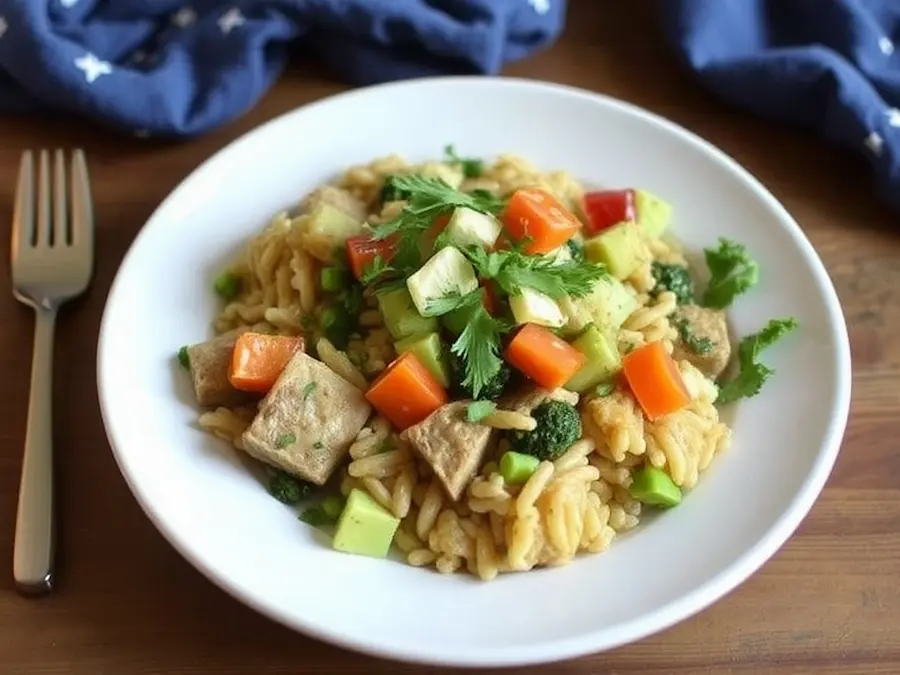
The history of Kosher Jewish Vegetarian Recipe is as rich as its ancient traditions. The art of Kosher vegetarian cooking combines plant-based cooking principles with the Hebrew faith’s ancient dietary laws. By examining the origins of Jewish nutritional practices and the concept of kosher vegetarianism, we can improve our understanding of the cultural and religious underpinnings of the plant-based kitchen.
Rabbi David Goldstein, a well-known expert in Kosher dietary laws, explains that Jewish plant-based cuisine is based on the historical and religious traditions of the Traditional community. It highlights the focus on nourishing both the body and the soul.
Evidence demonstrates that vegetarianism has been a constituent of Jewish culture for many years. Precisely, vegetarianism was prominent amongst Hebrew sages in former times, with wide-ranging currents of opinions among the sages either promoting vegetarianism outright or considering it a highly commendable way of life.
Here and there, this strong preference was founded in a longing to advocate the compassionate treatment of animals, and it may well take in an afterthought on the pains of slaughter. Others were looking to devise a path that would imitate the goodness that took place at the time of Creation, taking note of the Kosher tradition that insisted on a plant-based diet, all of which had lapsed.
https://valuablerecipe.com/5-best-vegetarian-instant-pot-recipes/
Kosher vegetarianism emphasises the importance of being a vegetarian within the Traditional diet rules, and it is possible to adhere to these rules, although not in the most traditional sense. Moreover, it highlights a progressive understanding of ethical food choices, indicating a far more ecologically, environmentally, and modernly ethical approach.
By grasping the ancient and traditional background of Jewish plant-based cooking, we can learn the value and importance of including plant-based meals in traditional Jewish cooking. Plant-based Jewish cuisine provides a remarkable culinary journey by blending delicious flavours and healthy ingredients and observing Kosher dietary laws.
As our investigation into vegetarian traditional cuisine continues, we will discover more about the Jewish plant-based Recipe, which smartly adapts traditional meat-based Jewish dishes. Think Shabbat stews, kugels, and matzo balls.
Unlock the Full Flavour of Kosher Plant-based Recipes
Kosher plant-based recipes are filled with flavours and ingredients that are familiar and traditional to any traditional table. To fully appreciate food and all that a dish has to offer, it’s essential first to understand the importance of ingredients. Seasonal food products are heavily employed in many traditional dishes, and freshness is a critical aspect of conventional dishes. Combinations of zucchini, eggplant, and carrot are used fundamentally in ratatouille-type meat-free dishes or kugel.
https://valuablerecipe.com/vegetarian-spaghetti-squash-recipes/
These ingredients are necessary to enhance German dishes; garlic is needed for seasoning, dill and parsley for enhancing the taste of fish/onion, and spices like cumin for German Sheff, za’atar for bread, and paprika for potatoes. For instance, sprinkling za’atar on served roasted vegetables will enhance the meal with a rich, slightly sour flavour. Besides that, don’t be afraid to use other grains such as bulgur, barley, or quinoa, which are part of traditional cuisine and give an extra dimension to any dish and the needed boost in nutrition.
Another essential tip is mastering techniques that make the food come out and your ingredients. Baking, for example, produces a brown crust on the vegetables and enhances the natural sugars in, say, roasted eggplant or sweet potato tzimmes. Likewise, slow-cooking beans or legumes impregnate them with spices and herbs and thus are a good base for soups and stews.
Also, the layering of textures in dishes makes a significant difference in the whole eating experience. Enjoy smooth hummus with crunchy pita bread or garnish stir-fried vegetables with healthy toasted nuts. Taste must also be considered – food should be served on beautiful plates or garnished with herbs to look appealing to the eye and the stomach. By doing this, they will respect Kosher food’s heritage and prepare veggie meals that people will be excited to put into their mouths.
https://valuablerecipe.com/valuable-food-recipe-for-vegetarian/
Celebrate Tradition with Modern Twists in Kosher Vegetarian Recipes
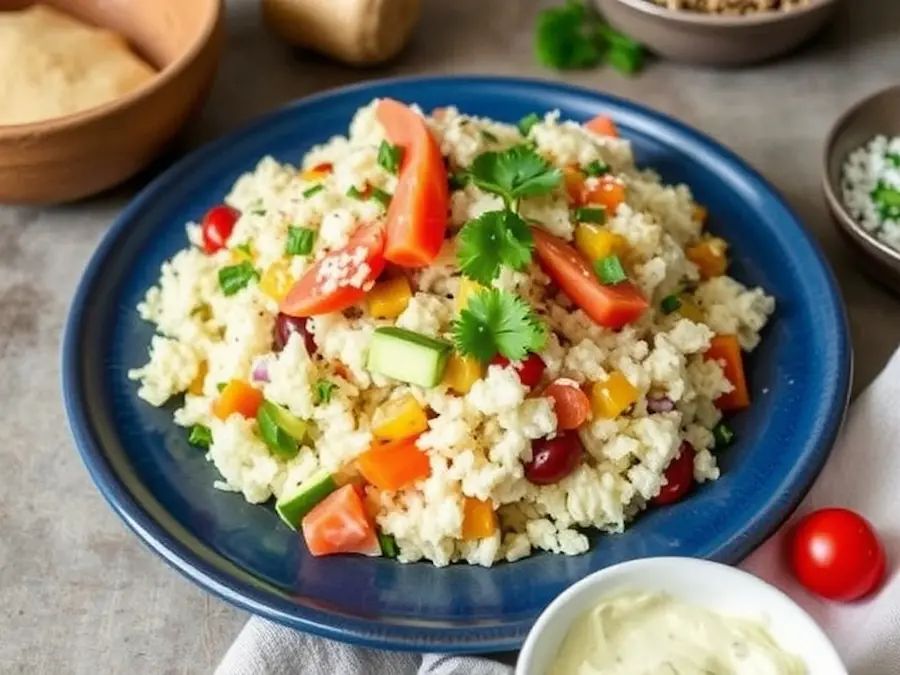
Connecting with Jewish meat-free is a fantastic experience to revolutionise old concepts with new fashion while retaining their original thought process. One way of doing this is by infusing internationalisation into traditional recipes. For instance, extend your simple and basic hummus recipe by incorporating a little drop of smoked paprika or chipotle to bring the smoky and spicy flavours. In the same manner, revise your latkes’ ingredients for hybridising ingredients like sweet potatoes or zucchini rather than using the traditional russet potatoes and replace the sour cream with Greek yoghurt or avocado cream.
Such changes are in taste and appearance, and adapting to more customers in the modern world has become truly useful. The next approach is to change the ingredients of conventional dishes to fit nutritional needs or provide healthy options without affecting the flavour. In many Jewish dishes, eggs and dairy are typically common binding ingredients. However, with everything going vegan, the common binding ingredients are flaxseed meal, aquafaba, or nut cream.
https://valuablerecipe.com/valuable-recipe-6-categories-for-food/
For instance, cashew cream and almond milk-based vegan kugel are as rich and tasty as one made with real, you know what. Substituting whole grains, such as farro or quinoa, for rice in recipes like stuffed peppers or mixed salads provides a nutritional boost and a nutty taste that enhances the other ingredients’ flavour.
Lastly, being creative with our food arrangements and conscious of our choices can add celebration to our daily food. Kosher dietary laws have always centred on food sharing to create bonds with Jewish brethren. You make an attractive presentation even if vegetarian dishes are well-cooked and not plated with forethought to their colours, textures, and garnishes.
Finally, there is nothing terrible about taking time to plate your meals and being more conscious of your eating. Lighten up by having a reunion that entails sharing a dish that narrates Jewish history. So when you go the extra mile of plating your vegetarian dishes and think about colours, textures, and garnishes to attract diners, you achieve an aesthetic value.
Reduce the appetite depressant effect by serving your meal with a plate complemented by a welcoming atmosphere. Whether you are preparing a Shabbat dinner or alone at home, these modern twists that belong to tradition enable you to make Jewish vegetarian recipes fit for today. These small, creative changes and meaningful additions turn your meals into more than edibles: they become heirlooms passed down from one family member to another.
Elevate Jewish Vegetarian Meals with Creative Pairings and Preparations
To make your traditional meat-free recipes incredibly tasty, you can think more about combinations of different ingredients. Several traditional recipes are characterised by sweet and salty flavours, making the meal delicious. For example, when mixed with meat-stuffed cabbage or couscous, dried apricots or raisins are another example of how natural sweetness complements the spices and intense flavours of vegetables. Simple enhancements to salads work wonders—replace regular tomato with pomegranate or orange, and sprinkle some nuts into the salad; if they are not in it, this can be almonds or sunflower seeds. By applying such small yet significant factors, it is possible to make each dish unique.
https://valuablerecipe.com/easy-healthy-vegetarian-dumpling-recipe/
Last, one should never underestimate the previous touch – sauces and garnishes. Usually, a few drops of tahini or a spoonful of harissa take an ordinary dish of roasted vegetables to a new culinary level. An example of being vegan is roasting the vegetables and then layering them with lentils or chickpeas, topped with a sauce made from yoghurt. In the same manner, including sour notes, say pickles, or sauerkraut, creates a contrasting element that is much lighter counter to richer textures present in the dish.
Another consideration can be made to the presentation assembly of those Foods—creatively elevate the recipes if your guests are sophisticated. Closely plate dishes on elegant serving trays and finish them with herbs, citrus zest, or sesame seeds. It is also important to note that all these techniques improve the meal’s flavour and respect the tradition of Jewish plant-based practice; every bite counts as a culinary revolution.
A Valuable Meat-Free Recipe: Enjoying Jewish Family Favourites
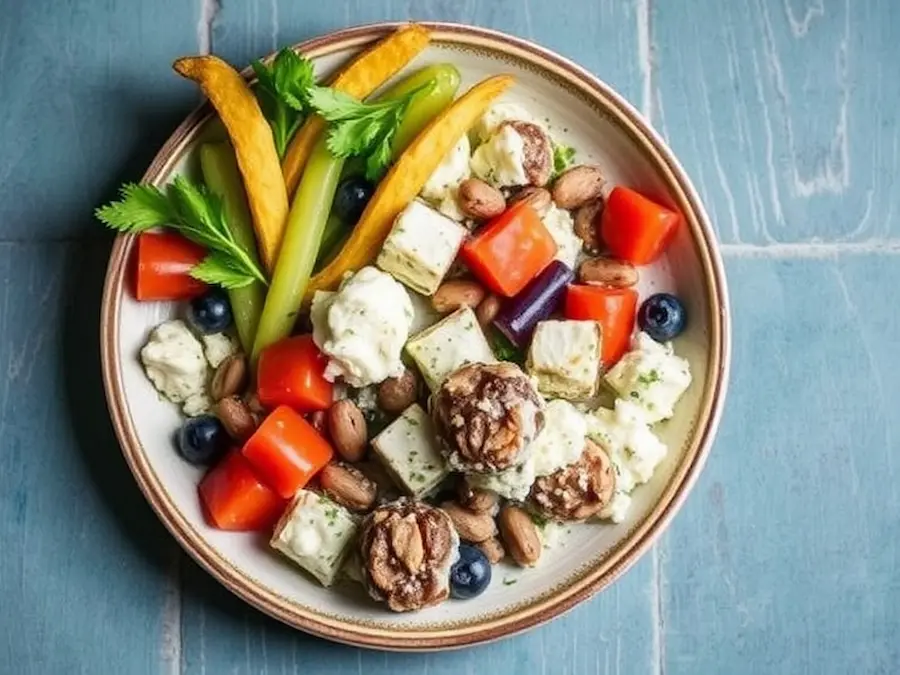
The following section is a compilation of delicious plant-based Jewish recipes enriched by classic flavours inspired by traditional Jewish dishes. These delightful, plant-based Jewish Vegetarian recipes offer comfort food with a modern twist.
Cholent: A Reimagining of the Traditional Sabbath Stew
Cholent, a robust stew typically served on the Sabbath, is a traditional Jewish meal known for its soothing taste and slow-cooking process. Though it has been made with meat and beans in the past, we’ve taken the old-world traditional Meat-Free Recipe and made it a product of cultural and dietary change. We’ve turned to plant-based substitutions for the traditional beef or chicken. The Cholent is filled with flavorful mushrooms, colourful vegetables, and spices. This dish is a true comfort; the flavours are nothing less than soul-satisfying.
Sweet Kugel: A Twist on a Salty Classic
Kugel, an essential part of holiday meals and family gatherings, is a testament to the power of simple, unpretentious comfort food. Traditionally, kugel is made with hearty ingredients such as noodles and potatoes. Our plant-based Jewish Meat-Free Recipe has transformed this classic favourite into an indulgent, sweet treat. This kugel will delight both traditionalists and vegetarians.
Matzo Ball Soup: A Vegetarian’s Dream
A compilation of Jewish comfort food would be incomplete without giving matzo ball soup its due. Frequently, this soup is made using meat-based chicken broth and matzo balls brimming with beef. Now, however, we prepare a vegetarian version of this classic dish. The matzo balls are light and fluffy from seltzer water and separated eggs. They’re made with a blend of carrots, parsnips, turmeric, and ginger for an unexpected and delightful twist.
Adding these essential vegetarian dishes inspired by traditional Jewish cuisine to your weekly menu plan is a homage to your commitment to plant-based living and a walk down memory lane. These meals take classic Jewish comfort foods and adapt them to suit the vegetarian lifestyle. They are perfect for every occasion, from a standard weeknight to a family gathering to holiday celebrations.
Jewish-Inspired Plant-based Meals for a Healthier You
Jewish culinary offerings are chock-full of delicious, hearty, and healthy foods that are inherently meat-free and plant-based friendly. Here is a series of plant-based and vegan Jewish meat-free recipes to sate the spirit, fill the belly, and excite the taste buds while keeping kosher and spinning a little of the Jewish song into your home cooking.
All sorts of culinary traditions have shaped the Jewish diet, resulting in various healthy meals. By making good use of fresh fruits, vegetables, whole grains, and vegetable proteins, these meals offer a healthful, meatless diet that is also satisfying.
These Jewish plant-based recipes include traditional Jewish ingredients and flavours (like tahini, za’atar, and pomegranate) but in entirely new ways. They focus on our love of vegetables, oil-rich pulses, and grains.
An Israeli salad stands out as a favourite. It consists of finely chopped cucumbers, tomatoes, onions, and various fresh herbs, all dressed with lemon juice and olive oil. This salad perfectly complements any meal and offers a burst of freshness.
An additional delectable choice would be the bell peppers filled with quinoa. These peppers are stuffed with quinoa, vegetables, and spices that add a great aroma. They are a satisfying main course that contains protein-packed quinoa and vibrant vegetables.
If you want something hearty and comforting, consider making a vegan soup with barley. The fragrance of the herbs and the earthiness of the mushrooms make for a soothing experience, and it’s perfect for colder days.
Consider preparing a cauliflower shawarma for a new take on classic Jewish Vegetarian Recipes. The vegetable is infused with spices and then roasted until soft and caramelised, resulting in a robust and complete entrée. Pair it with pita bread and a flavour-packed tahini sauce, and you will have everything needed for food that is not only an updated nod to the past but also a delightful one.
Summary
To conclude, Jewish plant-based dishes illustrate plant-fueled Jewish cuisine’s varied and rich landscapes. The dishes offer essential vegetarian alternatives, make respectful gestures, and thank the roots and past of Jewish cooking. Jewish plant-based dishes may project some twist on classic plate fillers, but they are a diversified, tasty, and healthy option for all healthy eaters.
When individuals delve into Jewish vegetarian cooking, they can enjoy a fusion of their cultural background and passion for consuming plant-based meals. Jewish culinary customs also offer many delectable and nutritious elements for crafting meals of comfort and nourishment.
If you are committed to adhering to a meat-free diet or are concerned about making your meals more plant-based, consider exploring the benefits of Jewish vegetarian recipes. Committed to adding flavour and sophistication to cultural classics, this cuisine guarantees cooking inspiration and meatless alternatives.
Individuals adopting Jewish plant-based cuisine can explore savoury and nutrient-rich dishes catering to their preferences. Therefore, why not begin a trip of preparing food and exploring all the great vegetarian dishes the Jewish culinary arts have to offer?
Frequently Asked Questions (FAQ)
Q: What are some practical Jewish plant-based recipes that I could sample?
Here are some fantastic ideas for meat-free dishes that you might want to try: – Tofu and Vegetable Stir-fry – Quinoa and Pepper stuffed with Vegetables – Vegetable and Lentil Curry -Portobello mushroom burger Cauliflower ‘steak’ with chimichurri – Chickpea and Vegetable Tagine – Zucchini and Corn Patties – Sweet Potato and Black Bean Enchiladas These meals are not only delightful but also carry vital nutrients.
Q: In what location are healthy meals that contain no meat available?
You can look for plant-based dishes and not just cookbooks in many places. Jewish meat-free Recipe websites can be another excellent source, as you noted. There are also blogs dedicated to plant-based cooking that can provide great recipes. Here are four popular sources you might wanna check out: “Oh She Glows” by Angela Liddon; “Thug Kitchen” from Thug Kitchen LLC; The Minimalist Baker (that’s minimalistbaker.com); and Cookie and Kate (cookieandkate.com). You should be able to find many fantastic, delicious, and nutritious foods you can cook without meat, inspiring you to get into the kitchen and start cooking.
Q: How can I incorporate simple plant-based cooking into my daily schedule?
Creating a regular habit of simple plant-based cooking in your daily life can be achieved by: – Organising the food schedule ahead of time and filling the kitchen storage with vegetarian basics, like beans, lentils, whole wheat, and various vegetables. – Seeking out diverse cooking styles and testing different flavours and ingredients. – Fusing plant-based elements into dishes you enjoy and changing food intake patterns.
You could include hummus as a salad or replace meat with tofu or cooked tempeh as part of the stir-fry Jewish Vegetarian Recipe. – Finding a network of vegetarians who could provide guidance, inspiration, and Jewish plant-based Recipe sharing. You could easily integrate simple meat-free cooking into your daily schedule by adapting and taking full advantage of multiple palatable vegetarian choices.
Q: Do traditional Jewish dishes inspire any vegan meal suggestions?
Certainly! B: Jewish cuisine can inspire a great many dishes that are entirely plant-based. Get a load of these five fantastic and deeply grounding ideas: Vegan matzo ball soup, made with a heavenly egg replacement and a stupendous vegetable broth.
Cholent without the stew beef is still perfect for a Shabbat lunch when made with increasing amounts of beans, potatoes, and vegetables. By the way, vegetarian kreplach is no departure from the divine dish; it always has chopped vegetables and firm tofu inside the dumplings.
Latkes of potato are purposely meant to have nothing to do with a chicken, so make your traditional crisp, chilling main course day meal fit into your chosen diet by topping them with either the apple or vegan sour cream you love best. The last dish in this roundup of plant-based businesses is the eggplant schnitzel, which, with the skin removed, looks a lot like a regular schnitzel. And it tastes almost just as good.

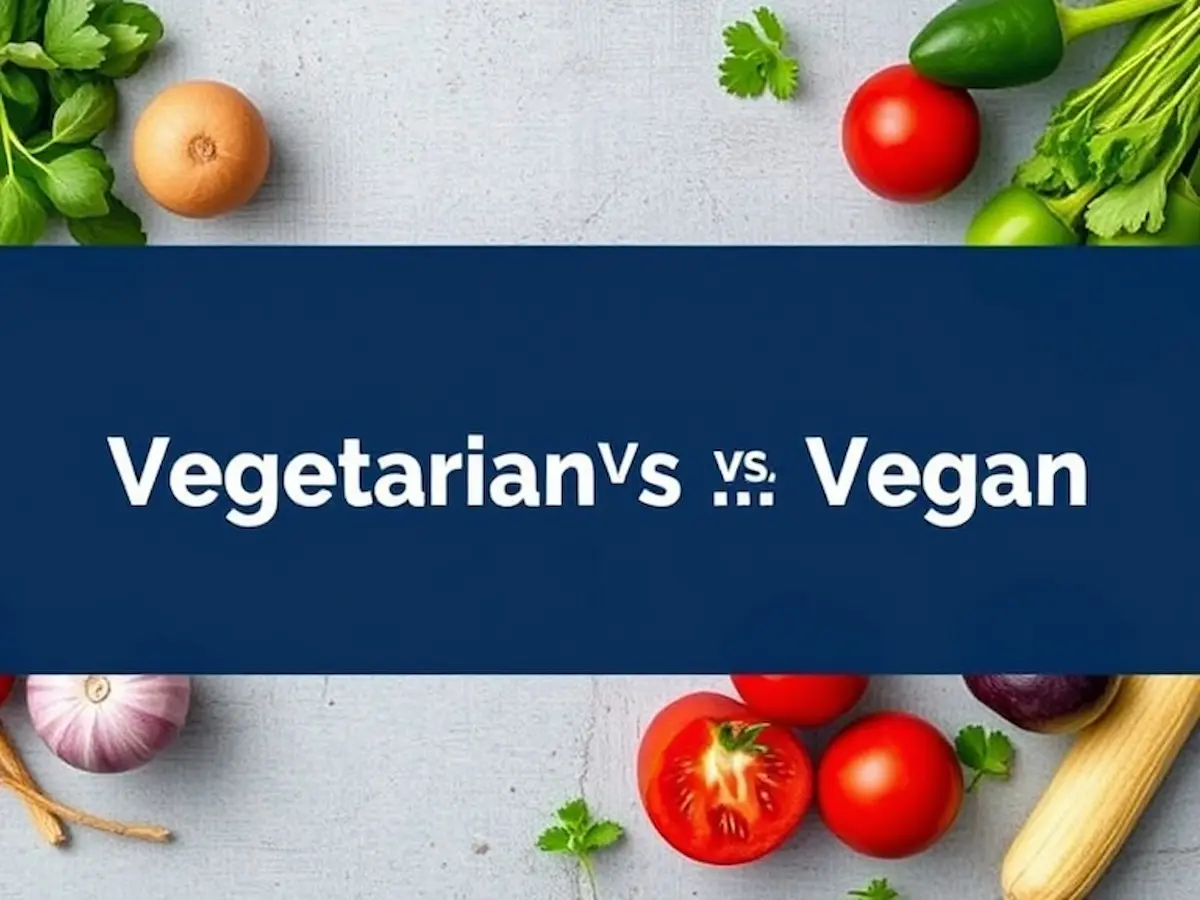

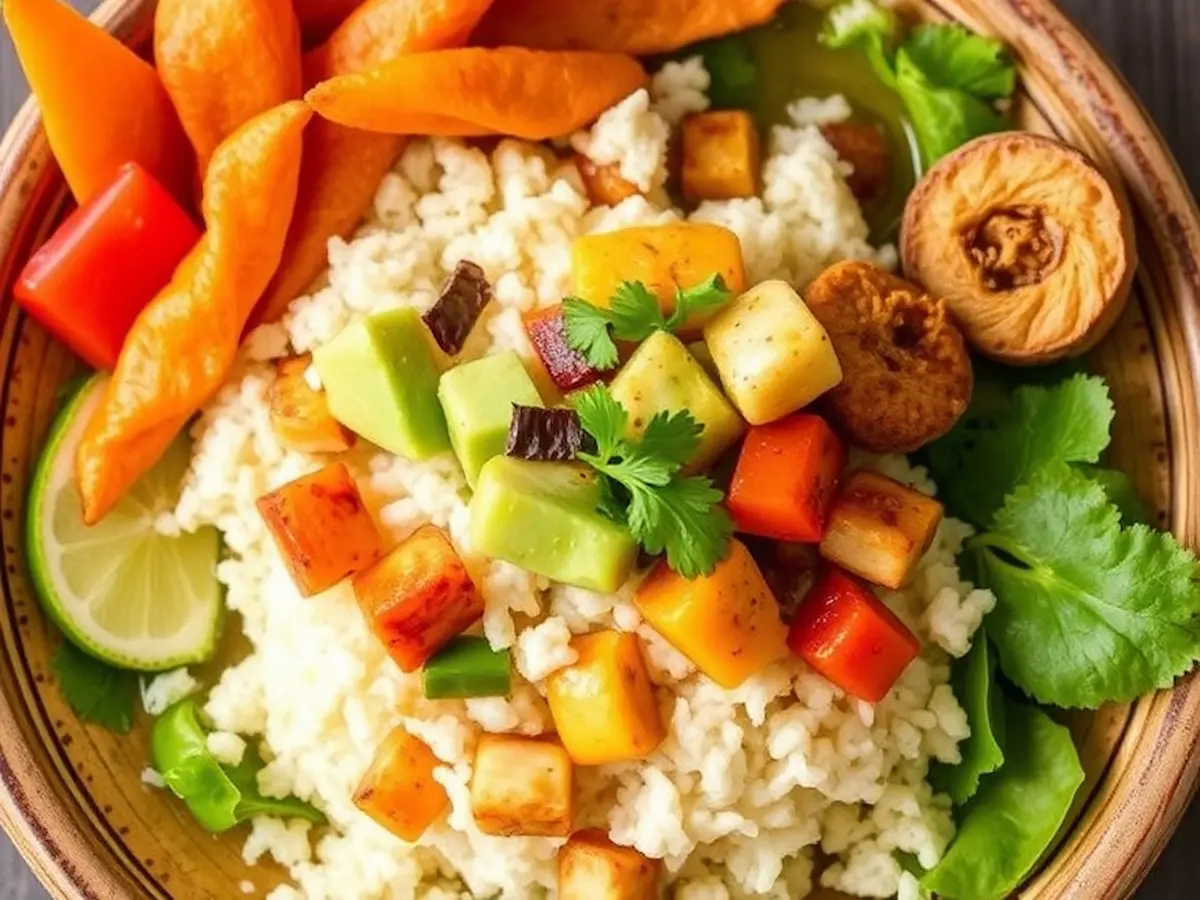

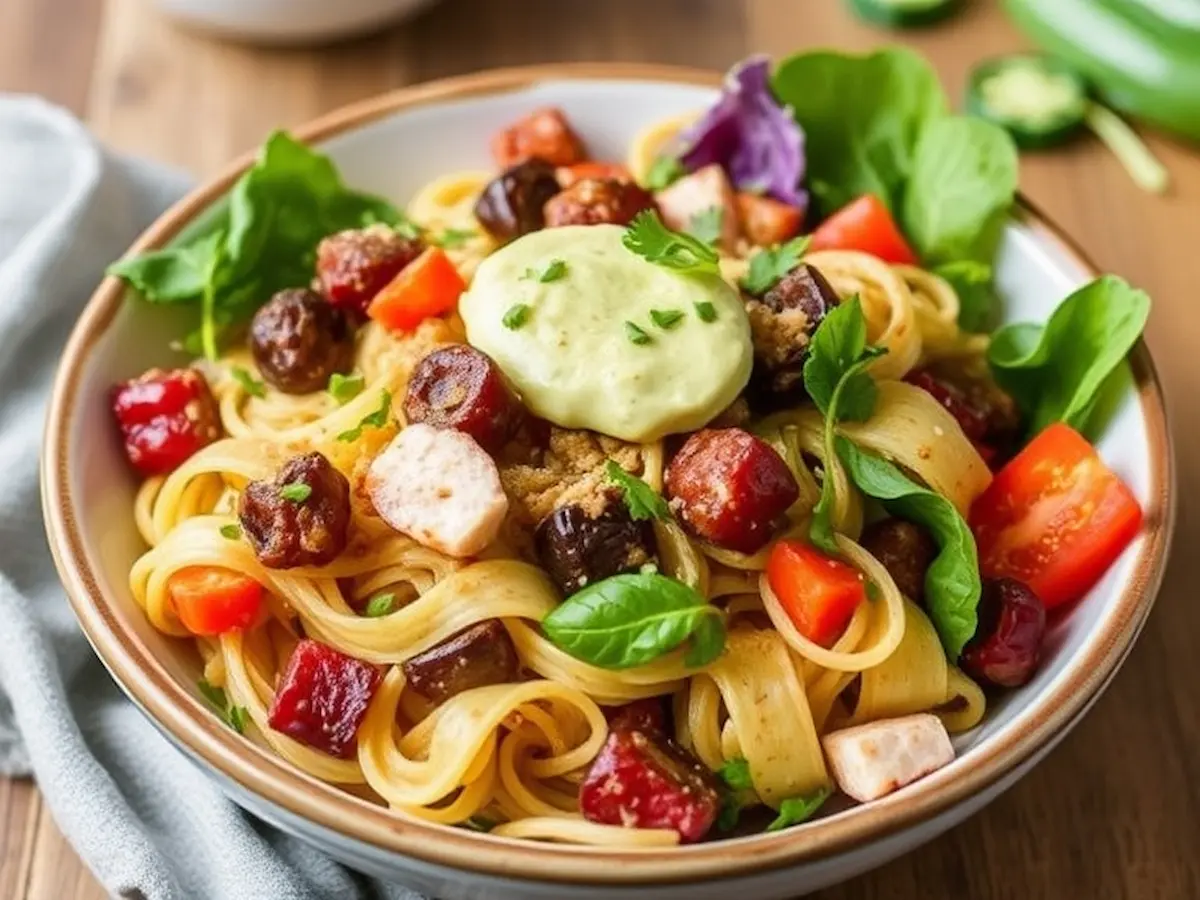
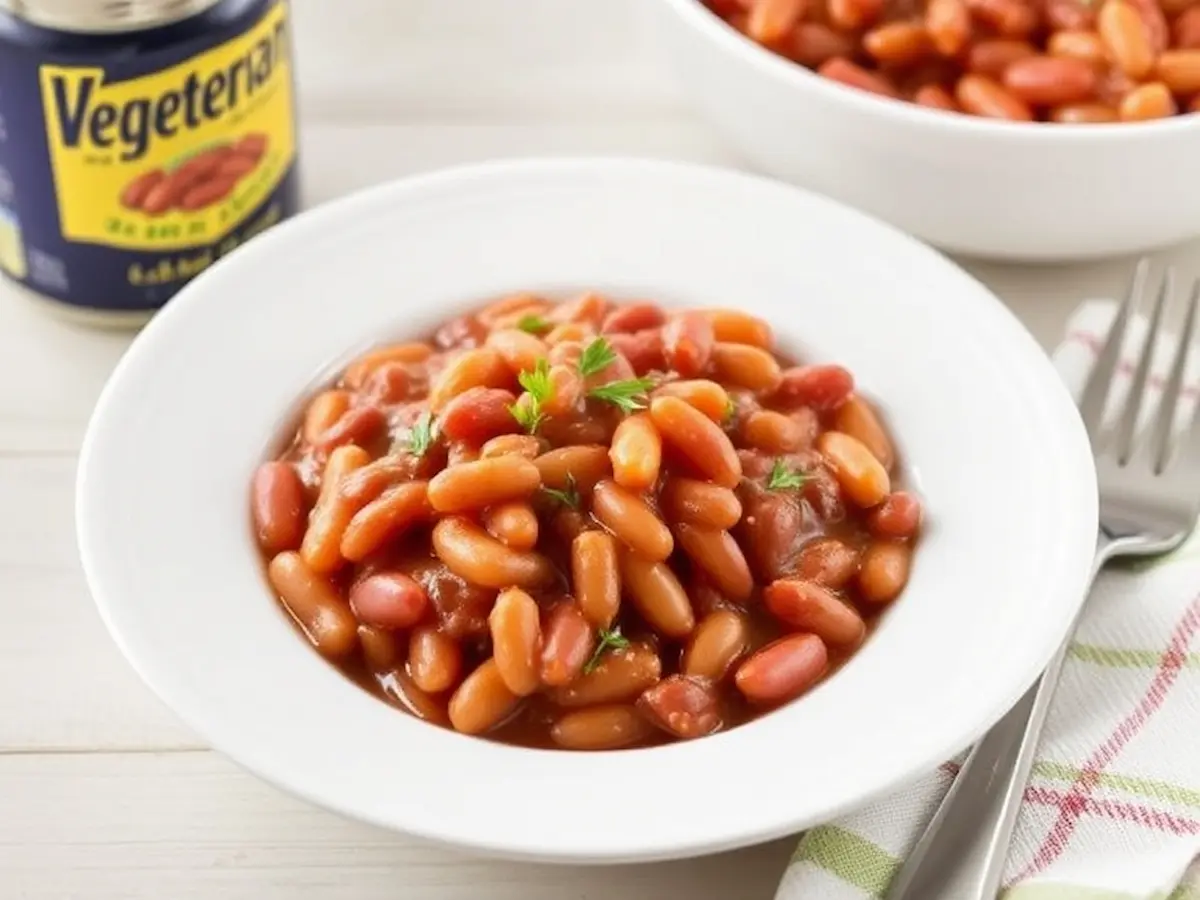


Pingback: Ninja Creami Guide To Delicious Vegan Recipes Https:https:
Pingback: Valuable Best Filipino Vegan Recipes Famous Worldwide (2024)
Pingback: 2 Best Jazzy Vegetarian Recipes
Pingback: Explore Best Valuable Recipe For Vegan Curry Laksa (Malaysia) – Https:https: 2024
Pingback: Healthy Gujarati Cuisine Recipes
Pingback: Valuable Food Recipe For Alabama Hot Pockets 2024
Pingback: Valuable Pet Food Recipe For Vegetarian Dog Food2024